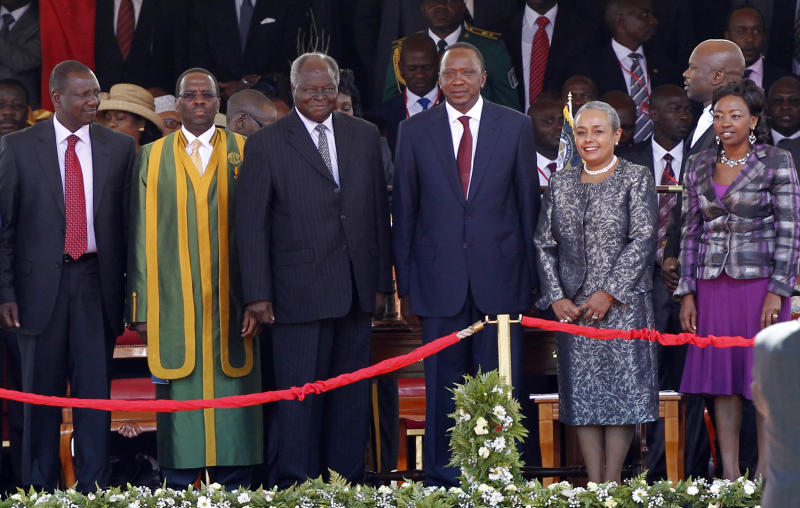Kenya's President Uhuru Kenyatta (3rd right) poses for a photograph with his predecessor Mwai Kibaki (3rd left) together with Deputy President William Ruto (L), Chief Justice Willy Mutunga (2nd left), First Lady Margaret and Rachel Ruto (R) after his swearing-in ceremony at Kasarani Stadium in Nairobi on April 9, 2013. [Courtesy]
